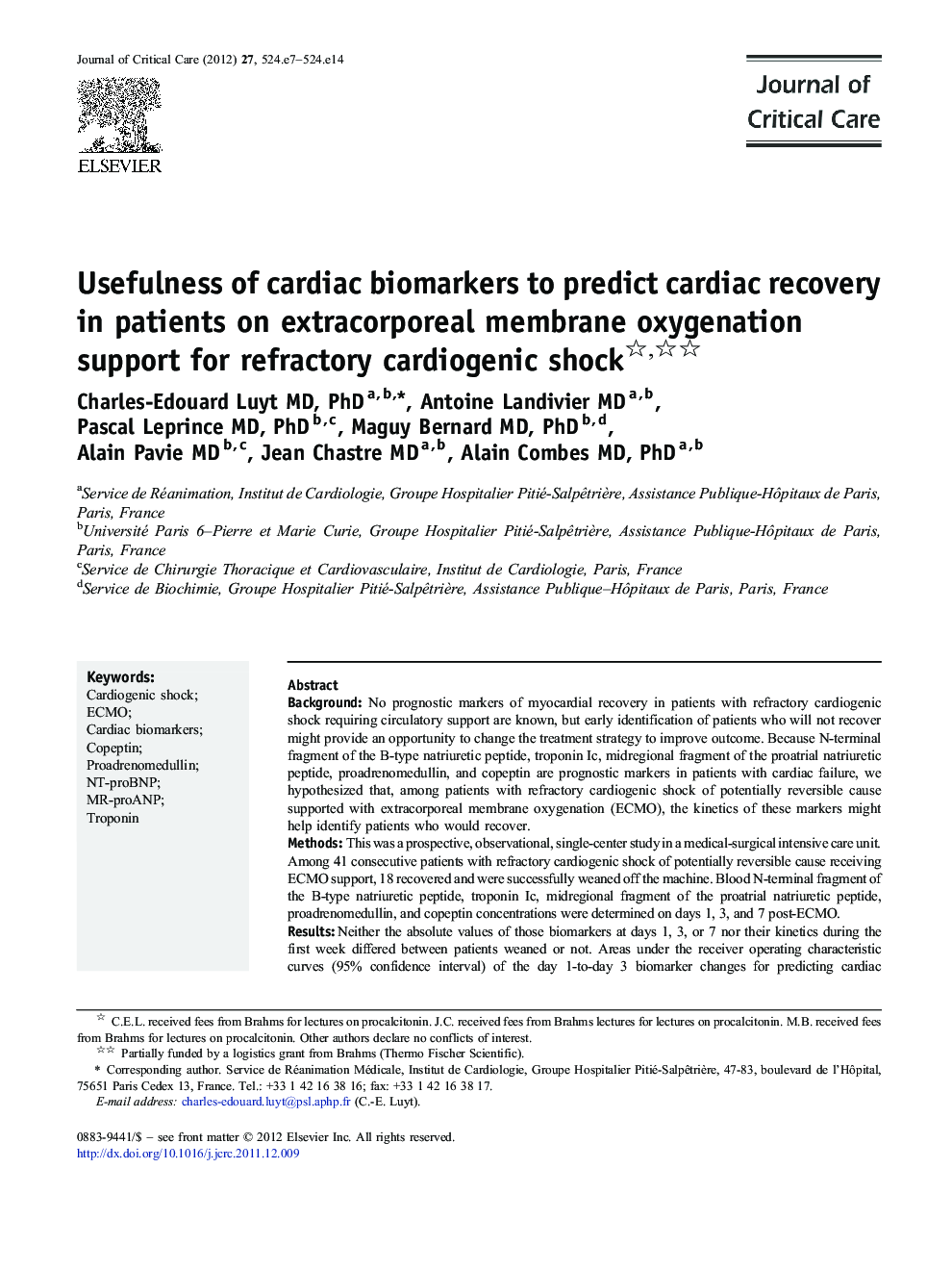| Article ID | Journal | Published Year | Pages | File Type |
|---|---|---|---|---|
| 5885734 | Journal of Critical Care | 2012 | 8 Pages |
BackgroundNo prognostic markers of myocardial recovery in patients with refractory cardiogenic shock requiring circulatory support are known, but early identification of patients who will not recover might provide an opportunity to change the treatment strategy to improve outcome. Because N-terminal fragment of the B-type natriuretic peptide, troponin Ic, midregional fragment of the proatrial natriuretic peptide, proadrenomedullin, and copeptin are prognostic markers in patients with cardiac failure, we hypothesized that, among patients with refractory cardiogenic shock of potentially reversible cause supported with extracorporeal membrane oxygenation (ECMO), the kinetics of these markers might help identify patients who would recover.MethodsThis was a prospective, observational, single-center study in a medical-surgical intensive care unit. Among 41 consecutive patients with refractory cardiogenic shock of potentially reversible cause receiving ECMO support, 18 recovered and were successfully weaned off the machine. Blood N-terminal fragment of the B-type natriuretic peptide, troponin Ic, midregional fragment of the proatrial natriuretic peptide, proadrenomedullin, and copeptin concentrations were determined on days 1, 3, and 7 post-ECMO.ResultsNeither the absolute values of those biomarkers at days 1, 3, or 7 nor their kinetics during the first week differed between patients weaned or not. Areas under the receiver operating characteristic curves (95% confidence interval) of the day 1-to-day 3 biomarker changes for predicting cardiac recovery were 0.54 (0.36-0.71), 0.61 (0.43-0.78), 0.61 (0.42-0.77), 0.56 (0.38-0.73), and 0.61 (0.43-0.78), respectively.ConclusionIn patients with refractory cardiogenic shock of potentially reversible cause receiving ECMO support, early measurements of cardiac biomarkers are not useful for identifying those who would recover.
